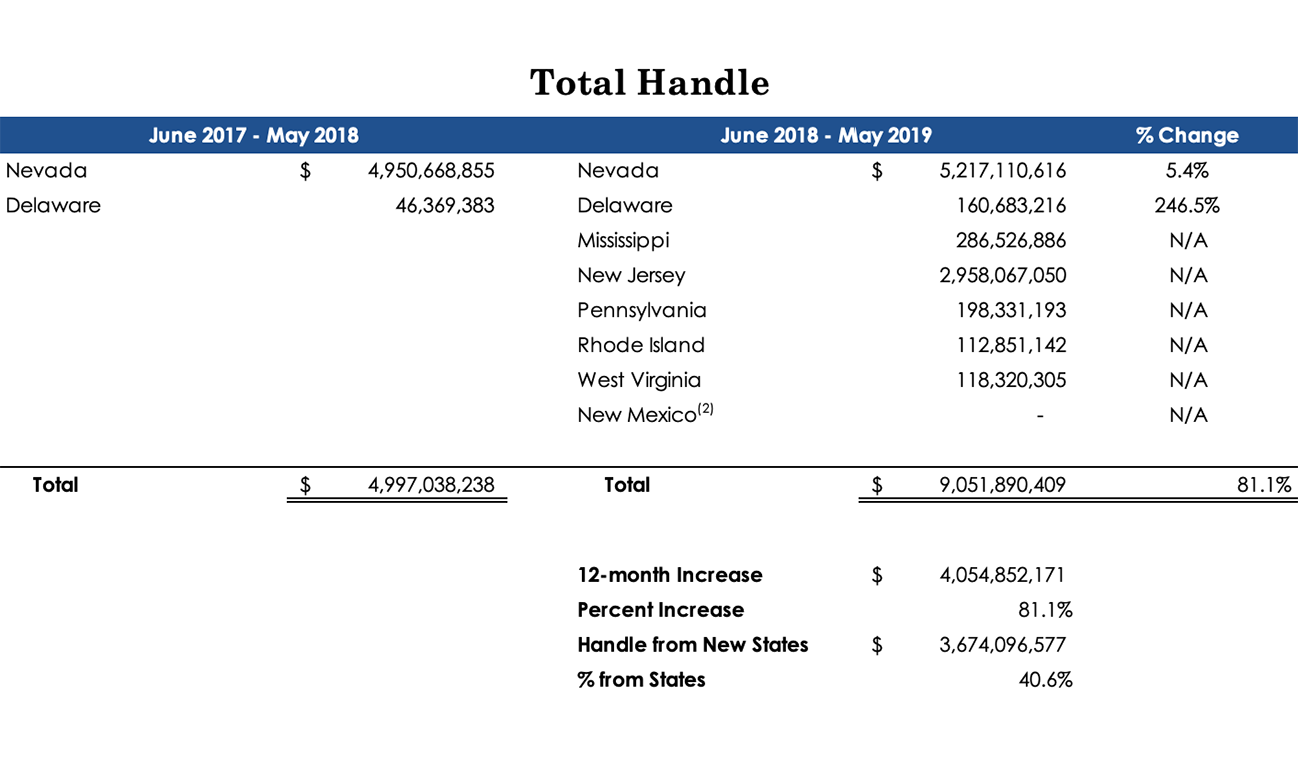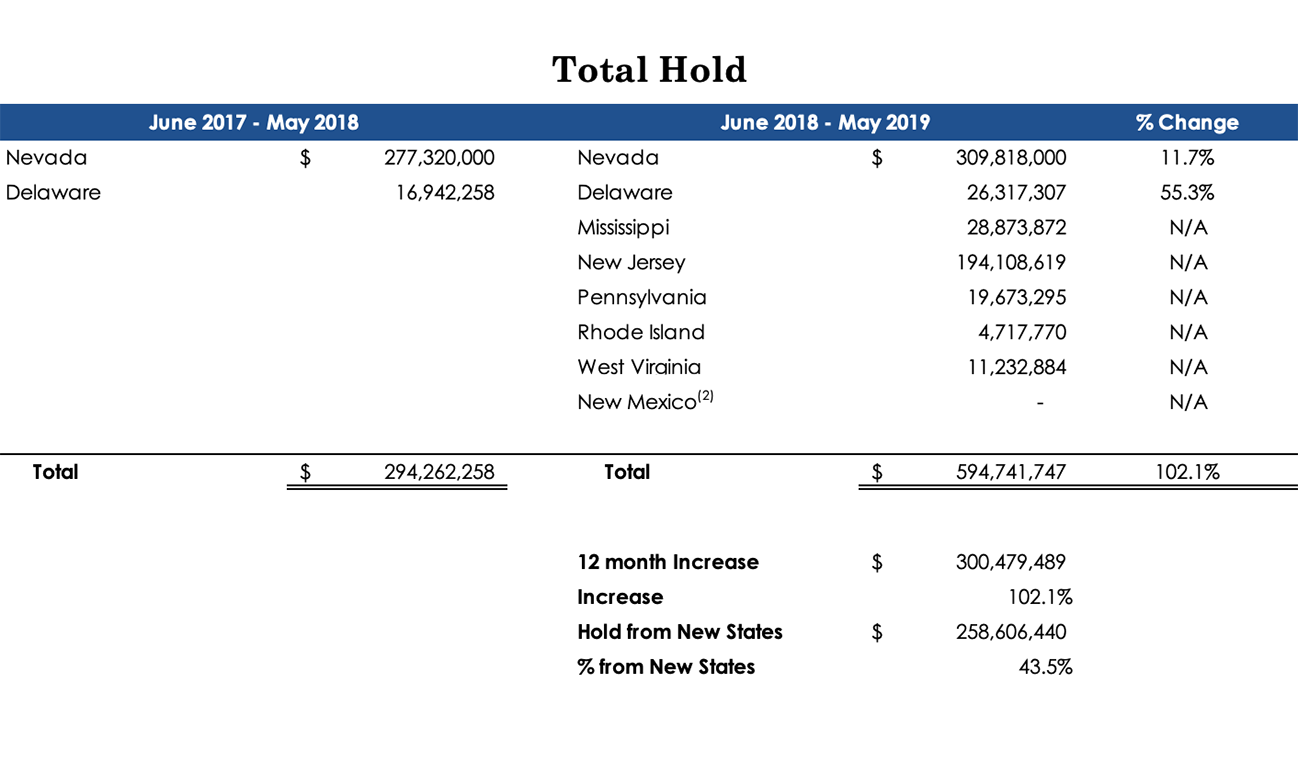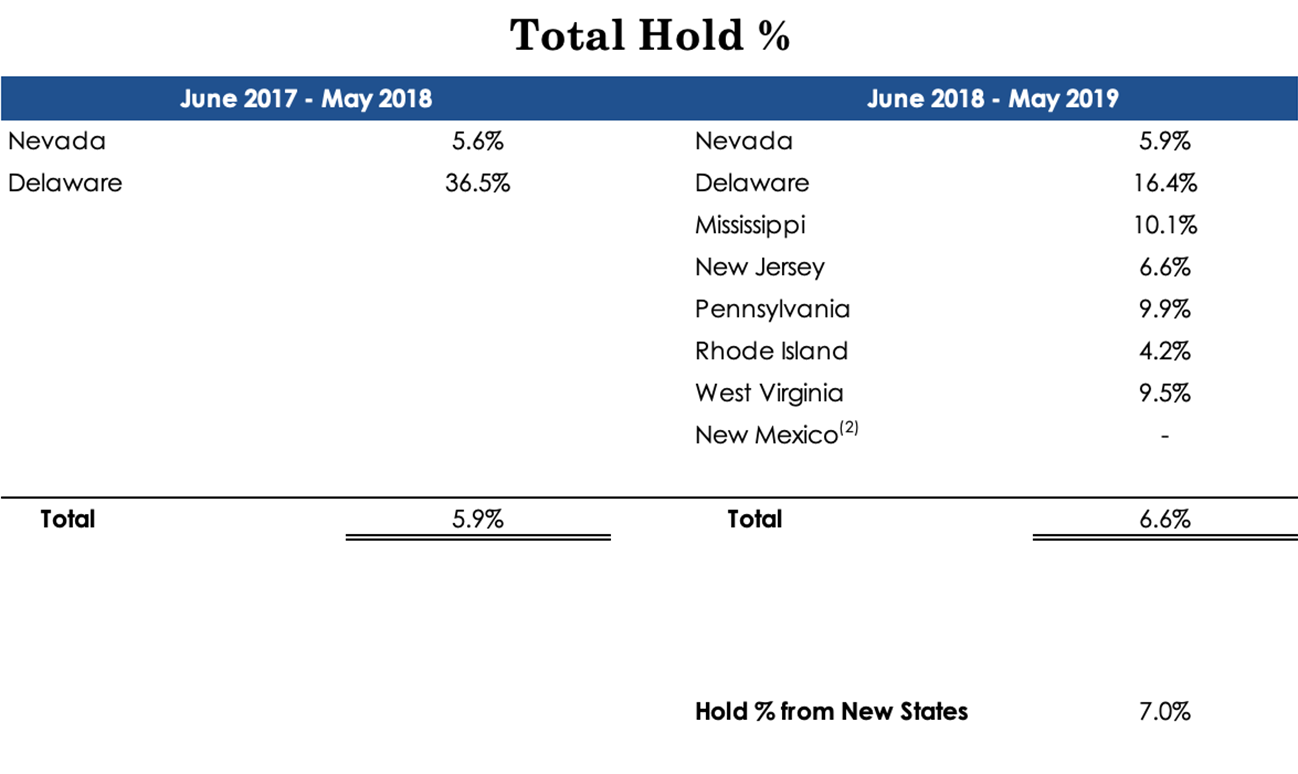Focus on Gaming: One Year Since the Overruled Professional and Amateur Sports Protection Act
Focus on Gaming: One Year Since the Overruled Professional and Amateur Sports Protection Act
It has been a little over a year since the Supreme Court overruled the Professional and Amateur Sports Protection Act (PASPA) in May 2018, permitting states across the U.S. to pass regulations that will allow them to offer sports betting. Prior to May 2018, only 4 states were permitted to offer sports betting in any capacity. Of these four states only Nevada and Delaware had accepted bets. In the last 12 months since the repeal of PASPA, sports betting has expanded across the U.S. and here are the key numbers through May 31, 2019.
17
The total number of states with laws allowing for legal sports books to operate. Only 8 states have started taking sports bets (with New Mexico being the only state taking sports bets by Tribes through Class III gaming compacts). The remaining 9 states could roll out legal sports betting before the end of 2019.
$9 Billion
The amount of sports betting handle in 7 states taking bets after the repeal of PASPA in May, 2018 (up from $5 billion wagered in Nevada and Delaware the 12 months before PASPA’s repeal). The increase of $4 billion came from New Jersey, Mississippi, Pennsylvania, West Virginia and Rhode Island.
Note: Handle in New Mexico was not available at the time of printing. Refer to the total handle table below for additional detail on the 7 states.
81%
The year over year increase in sports betting handle after the repeal of PASPA for the 7 states reporting the data. It's important to note that Nevada’s sport betting handle increased approximately 6% and Delaware’s increased approximately 250% in the 12 months after the repeal of PASPA.
$595 Million
The amount of sports bets held by the sports books for the 7 states reporting the data. This represents a 6.6% hold percentage for the first 12 months of expanded sports betting (up slightly from 5.8% held in Nevada and Delaware in the 12 months prior to PASPA’s repeal).
102%
The year over year increase in handle after the repeal of PASPA for the 7 states reporting the data. Nevada and Delaware both saw handle increases by 11.7% and 55.6%, respectively.
With 9 states anticipating to take sports bets before the end of 2019, sports betting will continue to grow and so will the gaming industry as we see revenue bumps in other casino games offered by the operators. To read more about the future of sports betting and the gaming industry revenue visit RubinBrown's Gaming Services.



(2) Santa Ana Star Casino began accepting bets on October 16, 2019, as a Class III gaming activity. No data is publicly available as of the time of publication.
Readers should not act upon information presented without individual professional consultation.
Any federal tax advice contained in this communication (including any attachments): (i) is intended for your use only; (ii) is based on the accuracy and completeness of the facts you have provided us; and (iii) may not be relied upon to avoid penalties.